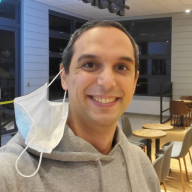
bhrdwj🔸
Bio
Participation3
I (and my family) are bootstrapping and operating "Everything is Learning". It's a program based in Kenya, to implement and mainstream "pre-speech reading and numeracy"starting in local daycares.
Website: EL.africa
Email: steven@EL.africa
How others can help me
I organizing to fundraise for Everything Is Learning.
Posts 1
Comments15
"For Humans By Humans" is a 💯 appropriate rule-of-thumb for posting I agree.
My comment was FHBH ofc, I wouldn't be so hypocritical as to post #3 and then violate it in the same moment! 🙏
I see the reputational danger! As soon as someone sees a speaker has mixed generated text into their speech once, the the speaker may be marked as "sus" evermore...
Thanks for the response!
I take your points well. Let me see if I can extrapolate from your enigmatic criticism in more depth:
- I should have kept the introduction more to-the-point, especially given the point is probably not a consensus one.
- Any "poll of AIs" methodology needs to be consitently accompanied by thorough red-teaming before it can be considered reliable.
- Another concern about posts heavy on generative-AI is the dangers of frivolous "cheap talk". If I'm going to survey AIs, maybe I should relegate all of their generated text into reference-linked pdfs, and keep the main post text carefully FHBH (for humans by humans)!
I agree with these points, and I will address all them in an upgraded re-try soon.
(Recovering from Rejection https://forum.effectivealtruism.org/posts/NDRBZNc2sBy5MC8Fw/recovering-from-rejection)
I think there's an intersection between the PauseAI kind of stuff, and a great-powers reconciliation movement.
Most of my scenario-forecast likelihood-mass, where the scenarios feature near-term mass-death situations, exist in this intersection between great-power cold-wars, proxy-wars in the global-south, AI brinkmanship, and asymmetrical biowarfare.
Maybe combining PauseAI with a 🇺🇸/🇨🇳 reconciliation and collaboration movement, would be a more credible orientation.
Moral alignment of AI's is great. But we need moral alignment of all intelligences. Humans, literal whales, and AIs. Confusion, trauma, misalignment, and/or extinction of some intelligences against others negatively affects the whole Jungian system.
We urgently need great power alignment, and prevention of the coming escalating proxy warfare. "AI-driven urgency for great-power reconciliation" actually ticks all the ITN framework boxes, IMHO.
看到有很多人投反对票你的原帖,我很伤心!
:(
可能悲观的意见是由于这个文章:https://forum.effectivealtruism.org/posts/Z95TxtkjHGPq4TAqY/why-not-to-rush-to-translate-effective-altruism-into-other
这是两个有关的报价:
"Rather than “translating” effective altruism into new languages, it seems better to think in terms of creating a local movement from scratch that’s inspired by the ideas of effective altruism, but is highly adapted to the local context. Imagine that Will MacAskill was Chinese: then what would he have written?"
...
"Initial efforts to expand effective altruism into new languages should focus on making strong connections with a small number of people who have relevant expertise, via person-to-person outreach instead of mass media."
还有,这个论坛评论有重视以上文章的重要性:
https://forum.effectivealtruism.org/posts/nEnNgWrnmqn9EcGfY/question-about-contacting-eas-in-china?commentId=f7SKarz3MCKagE3Ek

Let me amend that. Personally I would have no problem with an AI having its own forum account. But then it would also have to stand on its own merits of conciseness and relevance etc, and earn its own up votes.